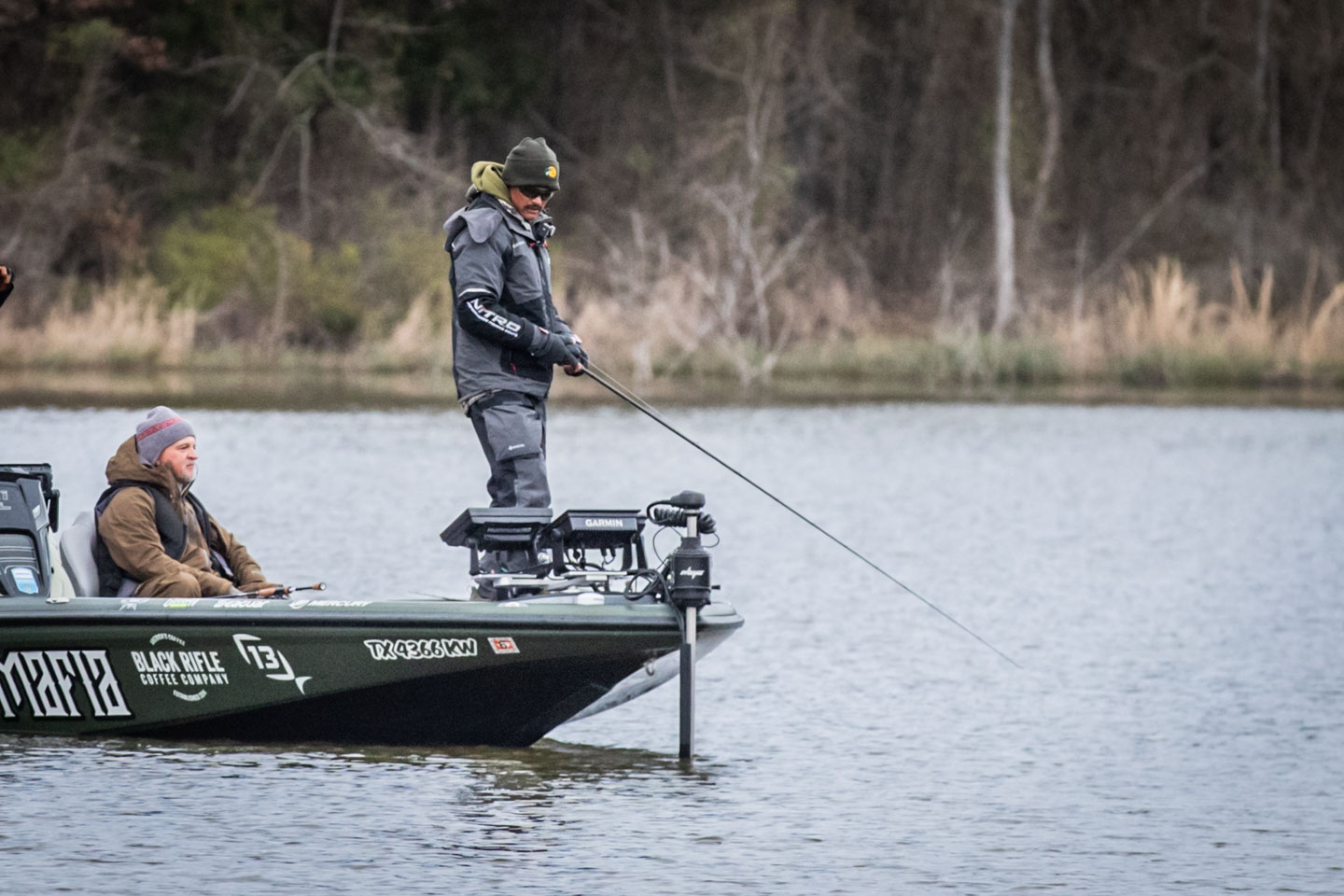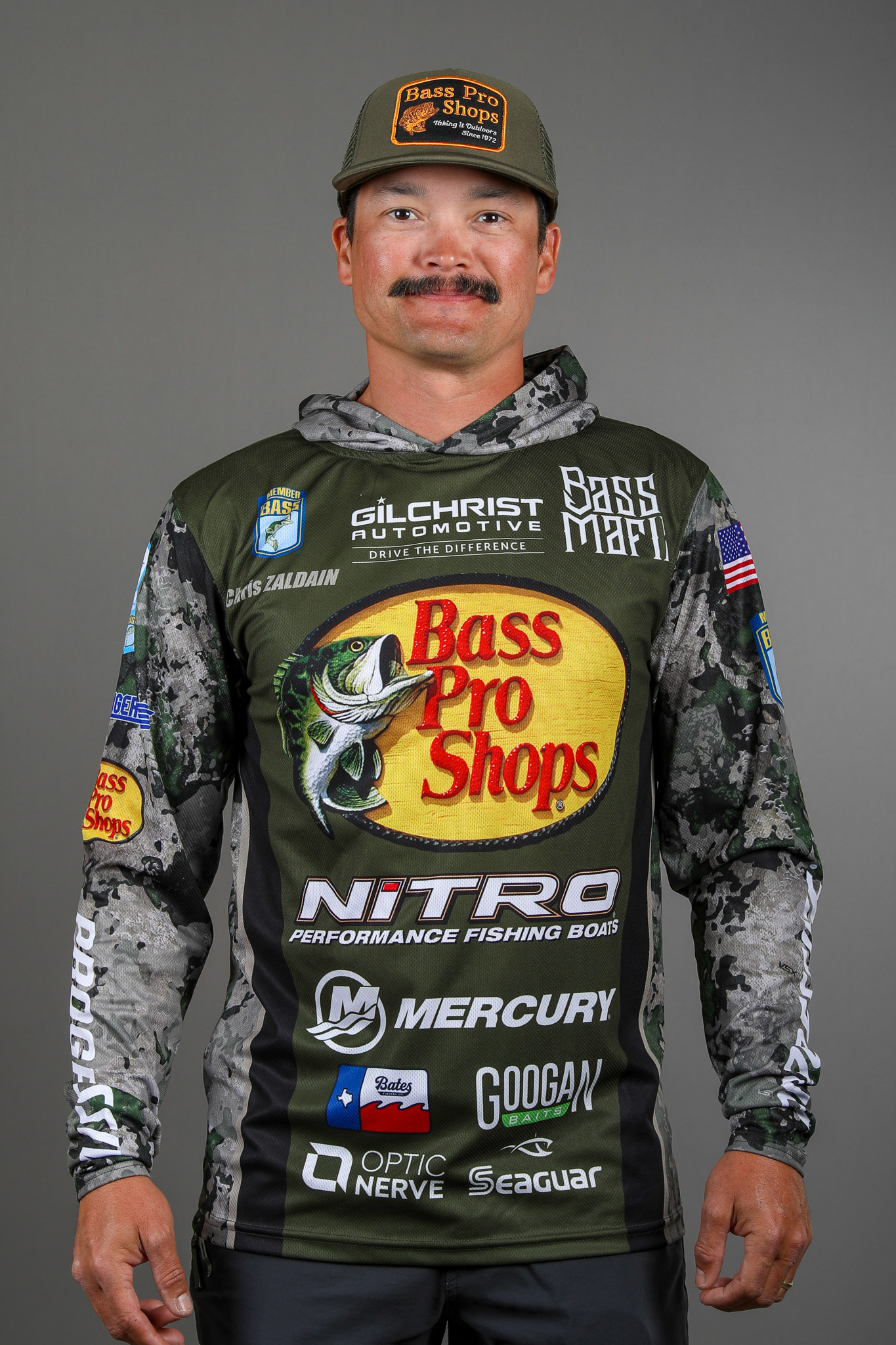
The painful reality that I’m not competing in this year’s Bass Pro Shops Bassmaster Classic at Grand Lake has made me more determined than ever to qualify for bass fishing’s biggest event in 2025. I’m off to a good start this season, having notched Top 50 finishes in the first two Bassmaster Elite Series tournaments.
Since I won’t be fishing the Grand Lake Classic, I have time to do some intensive research on Lake Ray Roberts, the site for next year’s Classic. And, I have an opportunity to do this prep work in March, which is the month the Ray Roberts Classic will take place.
I live only 45 minutes from Ray Roberts and regard it as my home lake. In March it produces some of the best bass fishing in Texas. A few years ago, I caught a five-bass limit there in March that weighed 40 pounds.
Now that I’m equipped with forward-facing sonar, I’m sure to learn more about Ray Roberts than I ever thought possible. Whatever your feelings are about this technology, it is going to play in every single Elite Series tournament and in the Classic as long as the rules permit it.
I have no choice but to embrace forward-facing sonar to be competitive. This technology dominated the first Elite Series tournaments of 2024 on Toledo Bend and Lake Fork. It also helped me sack my bass at those events.
This is the first year that I’ve had the most advanced forward-facing sonar on my boat. I’m still learning how to take full advantage of it. One thing I’ve found out is it eliminates a lot of guesswork. If you don’t see the fish on your graph’s display they aren’t there.
Say, you slay the bass on Thursday and the next day you can’t get a bite fishing the same spot. You ask yourself where they went, but you don’t have the answer. Forward-facing sonar shows you exactly where they went.
I’ve fished Ray Roberts hundreds of times, and I believe forward-facing sonar is going to confirm or disprove what I think I already know about this 29,000-acre lake. I’ll be scanning standing timber, rockpiles, old foundations and aquatic vegetation.
I mainly want to check the many potential places bass will be hanging out when spring arrives in Texas next March.
I also hope to find out how weather changes in March affect those big Texas bass. I might learn something about that today, because I’m going to Ray Roberts right after I finish this column. We’ve just had a substantial rain front blow through so I’ll have a chance to determine where the bass go under postfrontal conditions.
When I do fish, I’ll be experimenting with the baits I plan to use in conjunction with forward-facing sonar. There’s no question I love throwing big swimbaits in Texas in March, especially on Ray Roberts. I’ll also be casting jerkbaits and jighead minnows. I want to pinpoint exactly where to utilize each and every one of those presentations.
I plan on investing 15 to 20 days this March picking apart Ray Roberts with forward-facing technology. The goal is to uncover winning patterns for the Classic there next year. That’s an unusual amount of practice for one lake, but it could pay off with $300,000 and a world title.
We’ll see what happens 12 months from now when the Ray Roberts Classic gets underway. For now, I’ll be on that lake from sunup to sundown for the next few weeks.





